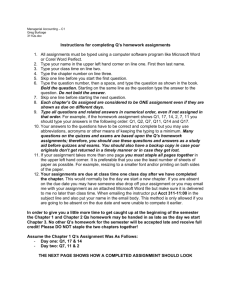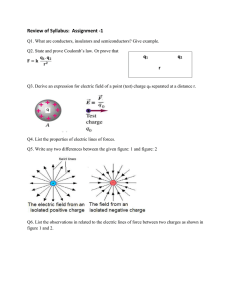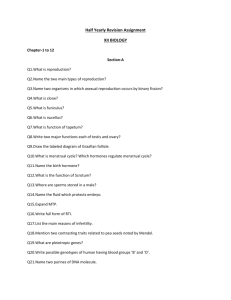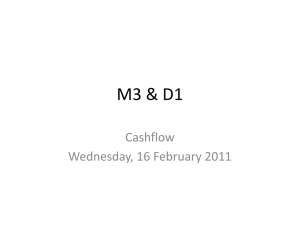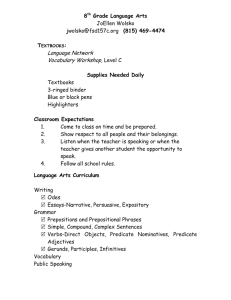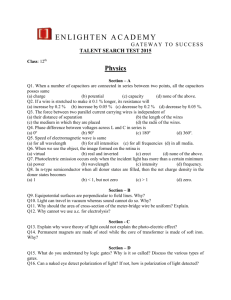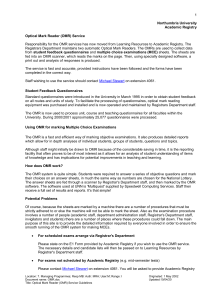Instructions for completing Qs homework assignments
advertisement
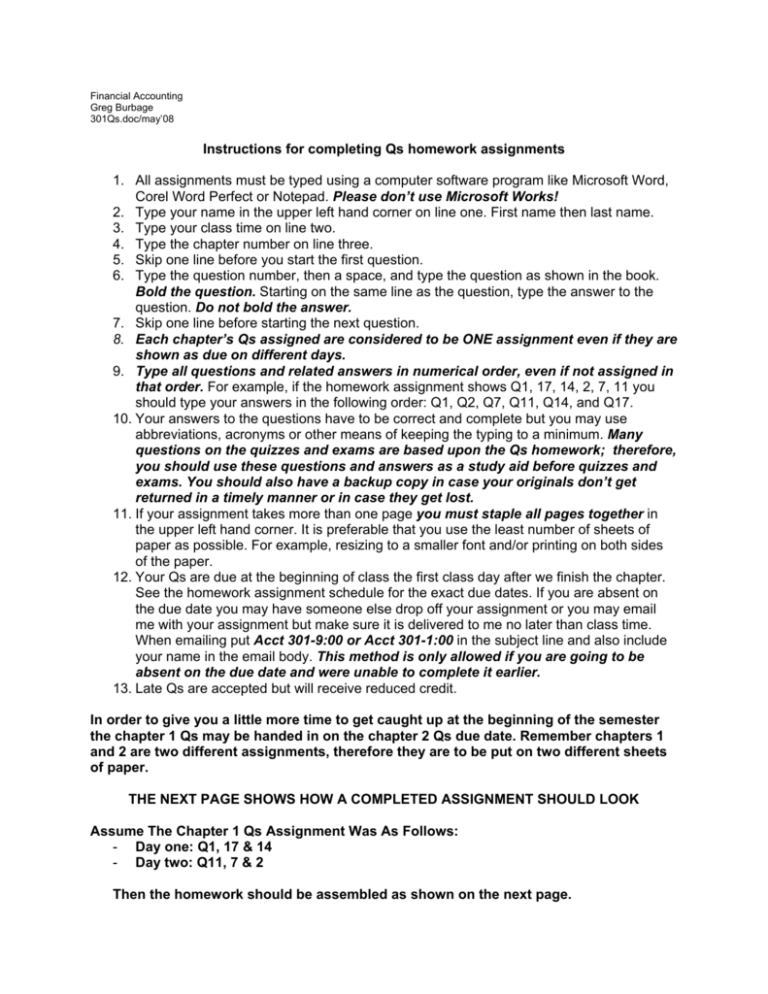
Financial Accounting Greg Burbage 301Qs.doc/may’08 Instructions for completing Qs homework assignments 1. All assignments must be typed using a computer software program like Microsoft Word, Corel Word Perfect or Notepad. Please don’t use Microsoft Works! 2. Type your name in the upper left hand corner on line one. First name then last name. 3. Type your class time on line two. 4. Type the chapter number on line three. 5. Skip one line before you start the first question. 6. Type the question number, then a space, and type the question as shown in the book. Bold the question. Starting on the same line as the question, type the answer to the question. Do not bold the answer. 7. Skip one line before starting the next question. 8. Each chapter’s Qs assigned are considered to be ONE assignment even if they are shown as due on different days. 9. Type all questions and related answers in numerical order, even if not assigned in that order. For example, if the homework assignment shows Q1, 17, 14, 2, 7, 11 you should type your answers in the following order: Q1, Q2, Q7, Q11, Q14, and Q17. 10. Your answers to the questions have to be correct and complete but you may use abbreviations, acronyms or other means of keeping the typing to a minimum. Many questions on the quizzes and exams are based upon the Qs homework; therefore, you should use these questions and answers as a study aid before quizzes and exams. You should also have a backup copy in case your originals don’t get returned in a timely manner or in case they get lost. 11. If your assignment takes more than one page you must staple all pages together in the upper left hand corner. It is preferable that you use the least number of sheets of paper as possible. For example, resizing to a smaller font and/or printing on both sides of the paper. 12. Your Qs are due at the beginning of class the first class day after we finish the chapter. See the homework assignment schedule for the exact due dates. If you are absent on the due date you may have someone else drop off your assignment or you may email me with your assignment but make sure it is delivered to me no later than class time. When emailing put Acct 301-9:00 or Acct 301-1:00 in the subject line and also include your name in the email body. This method is only allowed if you are going to be absent on the due date and were unable to complete it earlier. 13. Late Qs are accepted but will receive reduced credit. In order to give you a little more time to get caught up at the beginning of the semester the chapter 1 Qs may be handed in on the chapter 2 Qs due date. Remember chapters 1 and 2 are two different assignments, therefore they are to be put on two different sheets of paper. THE NEXT PAGE SHOWS HOW A COMPLETED ASSIGNMENT SHOULD LOOK Assume The Chapter 1 Qs Assignment Was As Follows: - Day one: Q1, 17 & 14 - Day two: Q11, 7 & 2 Then the homework should be assembled as shown on the next page. Your First Name Last Name 9:00 Chapter 1 Q1. What are the three basic forms of business organization? Sole prop, partnership and corp. Q2. What are the advantages to a business of being formed as a corporation? What are the disadvantages? Limited liability, can raise more money & easy transfer of ownership. Double taxation & no direct control of how the business is run. Q7. What are the three main types of business activity? Operating, investing & financing. Q11. What is the purpose of the Statement of Cash Flows? To show where cash came from and how it was spent. Q14. What is the basic accounting equation? A = L + OE Q17. How are each of the following financial statements interrelated? (a) retained earnings statement and income statement. (b) retained earnings statement and balance sheet. (c) balance sheet and statement of cash flows. (a) The I/S is a subpart of the RE account & shows specific changes to it from those things we call revs & exp. (b) The RE is a subpart of the BS and it represents the retained capital. (c) The SCF details the inflows & outflows of cash for a period of time, and the ending cash balance is shown on the BS; many inflows & outflows of cash affect the B/S A, L and OE accounts.
